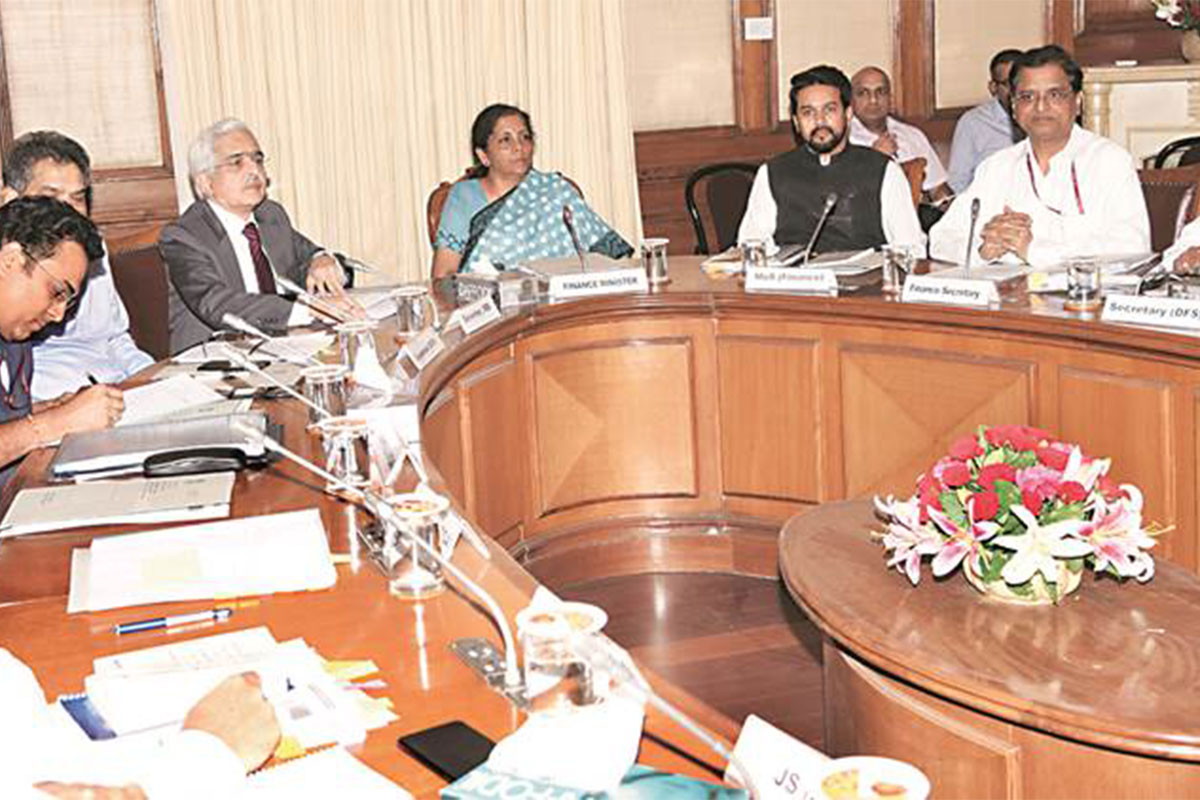FM hands over keys to homebuyers under SWAMIH Fund in Mumbai
Finance Minister Nirmala Sitharaman on Monday handed over keys to homebuyers from select projects in Mumbai Metropolitan Region (MMR).
The FSDC is the apex body of sectoral regulators, headed by the finance minister.

The meeting also took note of the activities undertaken by the FSDC Sub-Committee chaired by RBI Governor Shaktikanta Das. (Photo: Twitter)
Finance Minister Nirmala Sitharaman on Thursday chaired the 22nd meeting of the Financial Stability and Development Council (FSDC) and reviewed country’s economic condition, in view of disruptions caused by the COVID-19 pandemic.
It is the first such meeting to be held since the coronavirus outbreak.
Advertisement
The meeting assumes a greater significance considering that the economy is expected to contract by 5 per cent by some estimates amid the virus crisis.
Advertisement
During the meeting, the finance minister, RBI governor and other heads discussed various measures to maintain financial stability in the context of COVID-19 have been reviewed.
The meeting also took note of the activities undertaken by the FSDC Sub-Committee chaired by RBI Governor Shaktikanta Das and the initiatives taken by the various regulators in the financial sector.
The FSDC is the apex body of sectoral regulators, headed by the finance minister.
The meeting, held via video conferencing, was attended by RBI Governor Shaktikanta Das, SEBI chief Ajay Tyagi, IRDAI chairman Subhash Chandra Khuntia, Insolvency and Bankruptcy Board of India (IBBI) chairman M S Sahoo and PFRDAI chairman Supratim Bandyopadhyay.
Economic Affairs Secretary Tarun Bajaj, Revenue Secretary Ajay Bhushan Pandey, Financial Services Secretary Debasish Panda and other top officials of the finance ministry also attended the meeting.
This was the third meeting of the FSDC after the Narendra Modi government returned for the second term in May last year.
The RBI last week said the impact of COVID-19 is more severe than anticipated and the GDP growth during the current financial year is likely to remain in the negative territory. It projected some pick-up in growth impulses from the second half (October-March) of 2020-21 onwards.
On Tuesday, rating agencies Fitch and Crisil drastically cut India’s economic growth forecast for the current fiscal year due to a prolonged lockdown.
Fitch forecast 5 per cent contraction in 2020-21, a sharp decline from 0.8 per cent growth projected by the global rating agency in late April.
Similarly, Crisil also predicted the economy to shrink by 5 per cent in the current fiscal. Earlier, it projected a growth of 1.8 per cent.
Earlier this month, the finance minister announced about Rs 21 lakh crore stimulus package in five tranches, with an aim to help the nation tide over the economic crisis induced by the coronavirus and the lockdown to curb its spread.
The mega economic package includes the Reserve Bank’s Rs 8.01 lakh crore worth of liquidity measures.
These five tranches included a Rs 3.70 lakh crore support for MSMEs, Rs 75,000 crore for NBFCs and Rs 90,000 crore for power distribution companies.
Other than this, free foodgrains to migrant workers, increased allocation for Mahatma Gandhi National Rural Employment Guarantee Scheme (MGNREGS), tax relief to certain sections and Rs 15,000 crore allocation to the healthcare sector to deal with the pandemic, were also announced as part of the economic package.
Advertisement